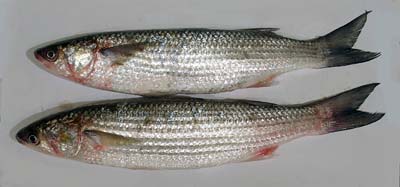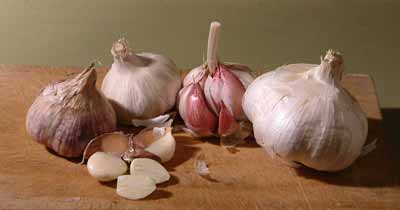Slightly acidic. In French this is more likely to describe the water in a swimming pool or the acid in the battery of a car than anything used in cooking.

A Corsican name for grey mullet, the commonest and largest of the grey mullet (US: striped mullet family). It is a silver, shoal-living fish pointed with dark grey which feeds on seaweed and plankton near the muddy bottom in estuaries and coastal waters. This can effect its flavour. However, a good grey mullet, caught in clean water, is round-bodied and has creamy white flesh and good flavour with good keeping capabilities. It must be thoroughly scaled before eating. Varieties are found all over the world. The roe is used for taramasalata, botargo, boutargue.
To reduce bitterness and sharpness. May also mean to soften by long, slow cooking, or to reduce saltiness by adding liquid, stock or water, or to soften water by reduing the limestone in water.
A mayonnaise-like sauce of crushed garlic, herbs, tomatoes and oil, similar to aïoli. It is sometimes added to stews, roasts etc.
A mayonnaise-like sauce of crushed garlic, herbs, tomatoes and oil, similar to aïoli. It is sometimes added to stews, roasts etc.

Garlic. As garlic is often used in Corsican cuisine, any mention of "agliu" in the title of a dish indicates a more pronounced use of garlic than usual. It is more widely used in the south of France than elsewhere, and in country dishes than in haute cuisine. It loses some of the violence of its flavour when it is cooked. Garlic is a relative of the lily, the onion and the leek. Len Deighton suggests that you do not flatten cloves of garlic with the side of a knife, as this will scatter particles of garlic onto your clothes, the smell of which will be impossible to remove.